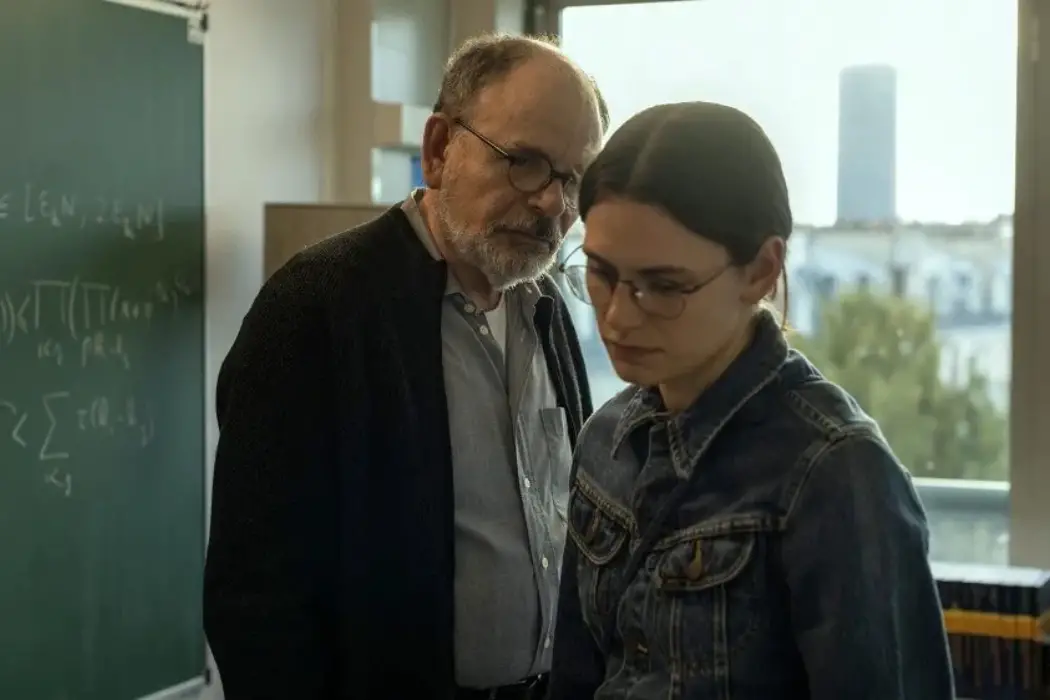Cannes 2023: ALL TO PLAY FAR & MARGUERITE’S THEOREM

Wilson is a cinema enthusiast based out of Toronto, Canada.…
This is certainly a rather late report from the 2023 edition of the Cannes Film Festival, but the following two films are interesting examples of dramatic French cinema with clear commercial appeal. Delphine Deloget’s All To Play For features a riveting performance from Virginie Efira, while Anna Novion’s Marguerite’s Theorem showcases Ella Rumpf in a somewhat reserved, yet highly emotional role.
All to Play For (Delphine Deloget)

A riveting drama on the harrows of separating a mother from her child, Delphine Deloget’s All to Play For (Rien À Perdre) is a rather straightforward narrative that features sound emotional beats and a solid performance from Virginie Efira. Not the most novel in terms of truly creative storytelling, but the film is still a thoughtful depiction of a complicated, yet all too familiar tragedy that’s embedded with social annotations. Set in urban France, Sylvie (Efira) is a single mother raising two children, Jean-Jacques (Félix Lefebvre) and Sofiane (Alexis Tonetti), while juggling shifts as a bartender. An unfortunate accident in the kitchen occurs when Sofiane is left alone at home, triggering the involvement of child welfare services. As Sylvie is forcefully taken away from his own family, the film examines the cruelty of institutional supports that are supposedly meant to be helpful.
Efira’s screen presence is heavily felt, which brings gravitas to a characterization that can oftentimes feel far too familiar. Her imperfections as a human being, not just as a mother, are clear and circumvent any notions of a fantastical depiction. Even in her moments of fury and outrage, which are clearly warranted, Efira finds a way to snap back to reality and bring forth a sense of focus that’s grounded in realism. Working with a screenplay that isn’t overly complex, her quiet and impactful performance certainly elevates the narrative intentions of the film.
And while the film rarely stretches beyond its comfort zone of exploring how society is ill-equipped to help support fractured families, it does so in a manner that treads above any melodramatic tendencies. Some of the film’s local sociopolitical details might be lost on international audiences – myself included – and this does detract from its narrative ambitions. Yet, the degree of frustration and anger against an imperfect system is effectively conveyed to evoke the right kinds of emotions. The injustice of personal circumstances, combined with the failures of social constructs that are meant to be helpful, resonates on a richly emotional level.
All to Play For does rely a bit too much on an overly expository screenplay, which likely wasn’t necessary when you have the likes of Efira in the leading role. The film could have easily leaned on her performance to draw out the narrative juice of the film, which might have resulted in a much more contemplative exploration of the same subject matter. Deloget still manages to craft a film that is full of conviction and purpose, even if the journey itself isn’t an overly refreshing experience.
Marguerite’s Theorem (Anna Novion)

Blending the astutely logical world of mathematics with the illustrious amour of romance, Anna Novion’s Marguerite’s Theorem (Le Théorème de Marguerite) is surprisingly pleasant in its identity as an atypical coming-of-age narrative. The film isn’t necessarily transformative but does unravel in a manner that both follows and deviates from its genre sensibilities, making it a rather interesting experience.
Marguerite (Ella Rumpf), is a rising star in the academic community of mathematics, on the cusp of making breakthroughs as a graduate student at one of France’s top universities. When her thesis supervisor (Jean-Pierre Darroussin) decides to take on Lucas (Julien Frison) as an additional student, tensions are created with Marguerite feels her presence being diminished. She ultimately leaves the university, pursuing an alternative lifestyle, before eventually being drawn back into the magnetic world of academia.
And while the film certainly angles itself around Marguerite’s journey of self-discovery after leaving the academic world – including a fun excerpt on her successful venture as an underground Mahjong player – she’s ultimately drawn back to mathematics after choosing to collaborate with Lucas on solving an improbable equation. The film then pivots to many of the usual romantic tropes we’re accustomed to seeing but does so in an assuming manner. Creating a sense of brevity through Pascal Bideau’s gentle and memorable score, the narrative moves rather naturally, even when the expectation is that it shouldn’t.
What results is a calamity of romance that somehow deviates from convention, yet doesn’t come as a surprise. Much of this comes from Rumpf’s astute performance as a rigid and misunderstood observer of life, who yearns for something beyond the sensible realms of numbers and equations, even if such a pursuit goes against her convictions. In all fairness, it’s a character we’ve seen time and again, but together with the film’s commentary on gender biases in the academic world, feels anew in its dissection of something socially relevant. Specifically, it adds a layer of heart and simplicity to the discussion, without ever reducing the story to a conventional love story.
It’s rare for a film to feel this familiar, yet refreshing, which is a testament to Novion’s creative instincts as a filmmaker. Marguerite’s Theorem isn’t groundbreaking by any means, but it does offer a touching romance with serious undertones, that’s a tender reminder of how to elevate a tried and true narrative without necessarily reinventing it.
Does content like this matter to you?
Become a Member and support film journalism. Unlock access to all of Film Inquiry`s great articles. Join a community of like-minded readers who are passionate about cinema - get access to our private members Network, give back to independent filmmakers, and more.
Wilson is a cinema enthusiast based out of Toronto, Canada. He escapes from his day job by writing random thoughts about cinema on the internet. Although he has a longstanding penchant for Hong Kong cinema, he considers himself to be an advocate for Asian cinema in general. He has been attending the Toronto International Film Festival every year since 2005, and more of his work can be found on his website: www.wilson-kwong.com.













